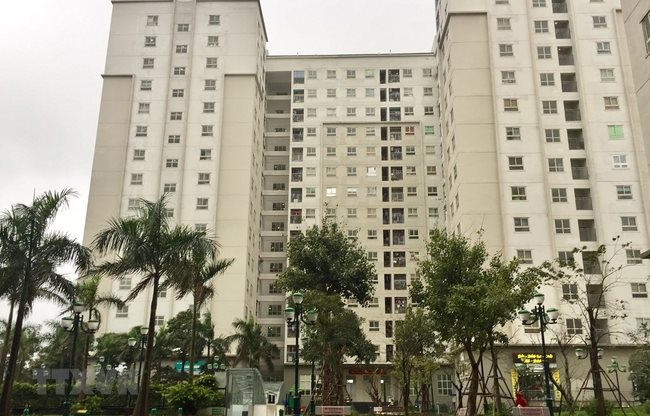
A new circular, which will take effect in early January next year, asks local banks and the branches of foreign banks to comply with the dropping maximum ratios of short-term capital used for medium- and long-term loans.
The rate between January 1 and September 30 will be 40%; between early November and late September 2021, 37%; between early November 2021 and late September 2022, 34%; and from early November 2022, 30%.
Banking experts were quoted by the local media as saying that the timeline gives commercial banks time to prepare for adjustments to their capital restructuring efforts and loan portfolios, helping boost the sustainable development of the banking system.
According to the circular, the risk coefficient of 50% applies to a personal loan worth less than VND1.5 billion for customers who wish to buy houses in the budget housing segment, under the Government’s support programs and projects. Each customer can apply this risk rate to one loan only.
Meanwhile, the risk ratio of 100% is applicable to loans worth less than VND4 billion (US$173,000). The home itself can be forfeit if a personal loan is used to buy a home without collateral.
A ratio of 150% is applicable to loans of at least VND4 billion to serve personal needs.
An official with the central bank stated that this regulation does not affect the demand for loans to serve the housing needs of low-income earners, as well as the State’s social security policies. The loans are entirely guaranteed by houses, including those to be built in the future, and by the land use rights of borrowers buying affordable houses.
Houses with prices below VND1.5 billion saw their loan risk coefficient dropping to 50% from the previous 150%. As such, homebuyers in this segment who need loans will not suffer any negative impact and will even gain an advantage, stated Can Van Luc, a finance and banking expert.
According to Bao Viet Securities Company, the circular implies that the central bank is still trying to reduce loans in risky sectors and improve the safety of the banking system.
Economist Nguyen Tri Hieu commented that the central bank has made a strong statement on controlling loans for the high-end housing segment, while indirectly asking local banks to create capital reserves for the real estate sector, which carries a high risk.
Consumer loans of VND4 billion or more carry multiple risks as most of them are used to purchase high-end apartments, said Nguyen Thanh Do, vice chairman of HCMC Development Commercial Bank.
Therefore, a hike in the risk ratio to this outstanding loan is needed to limit risk exposure for banks and the real estate market, he stressed.

















